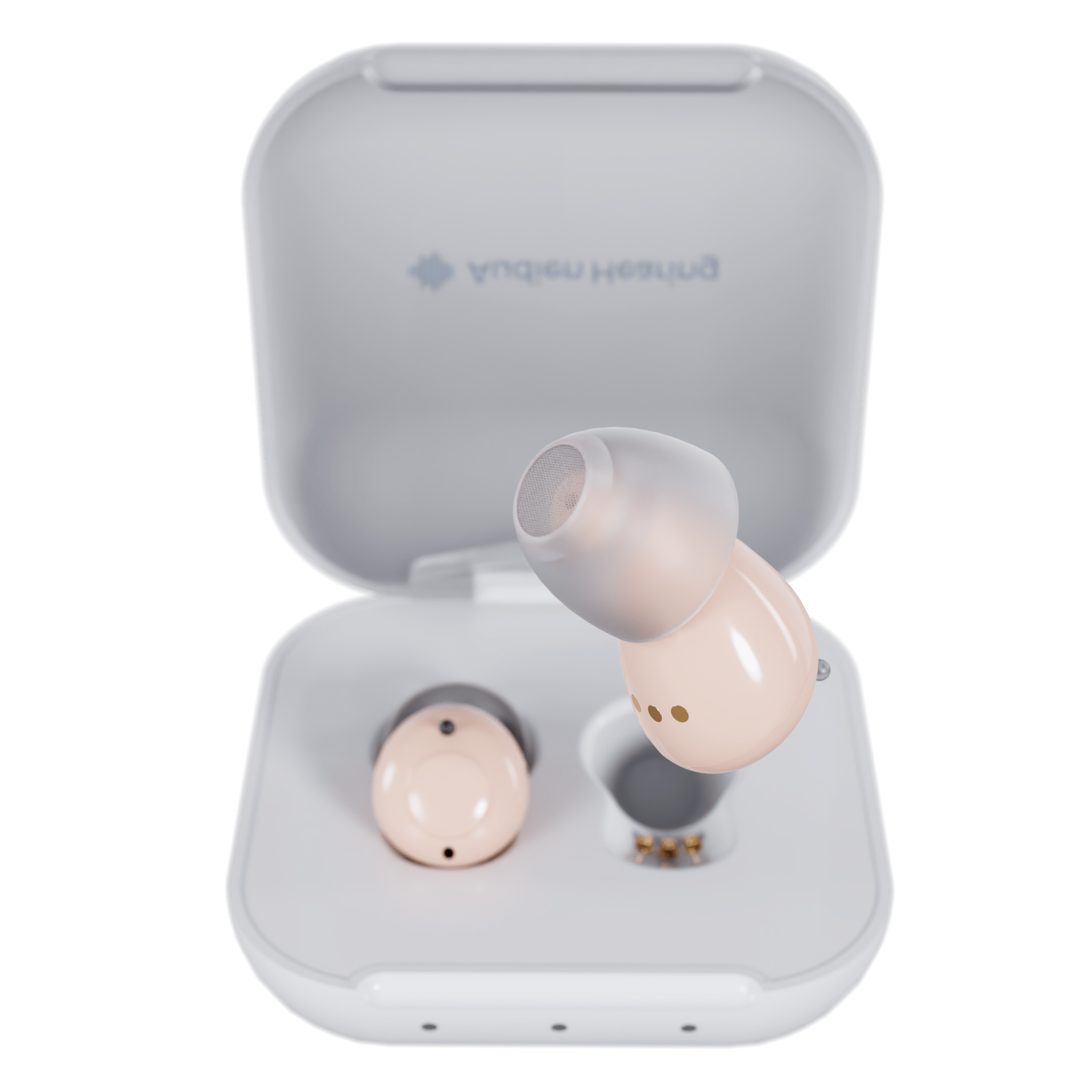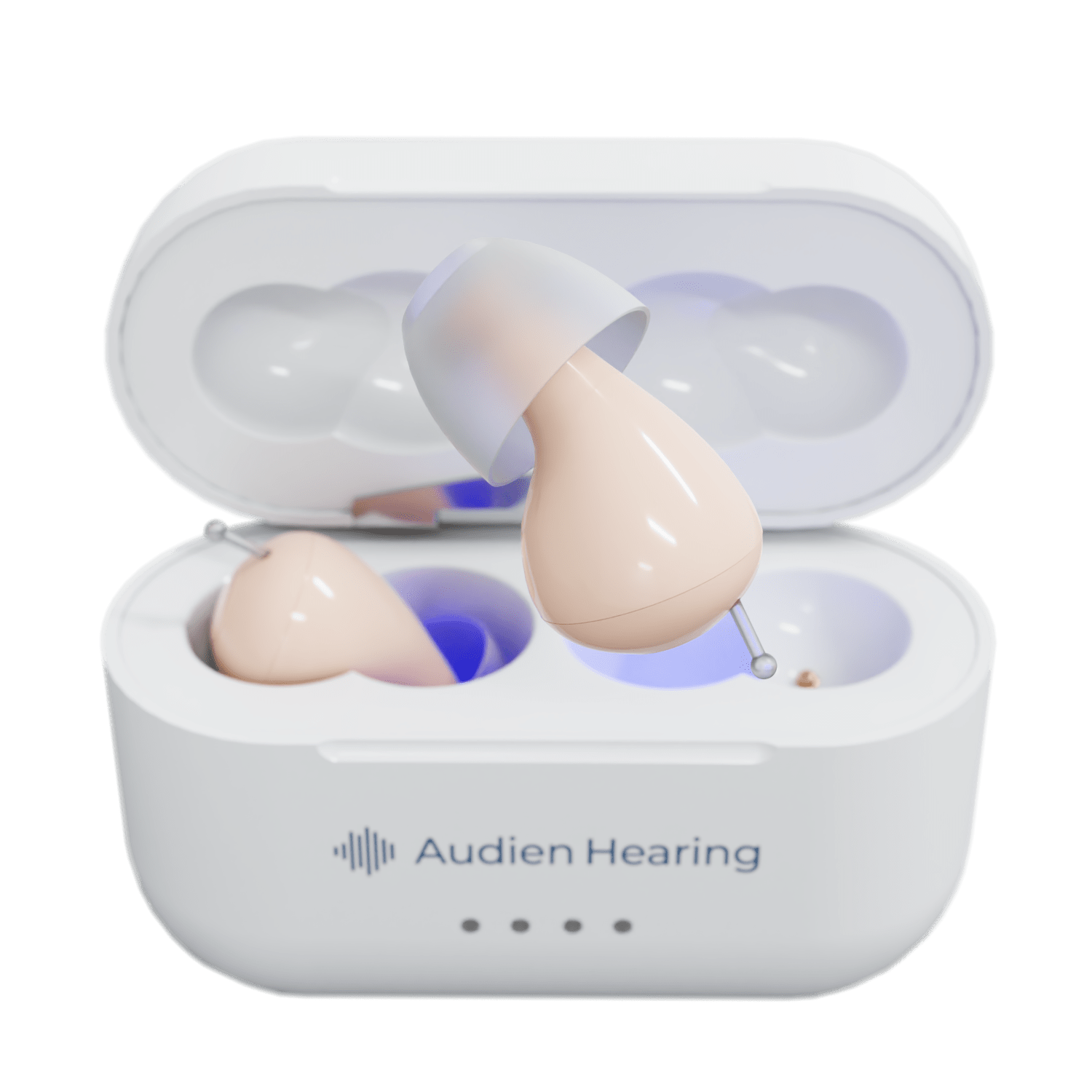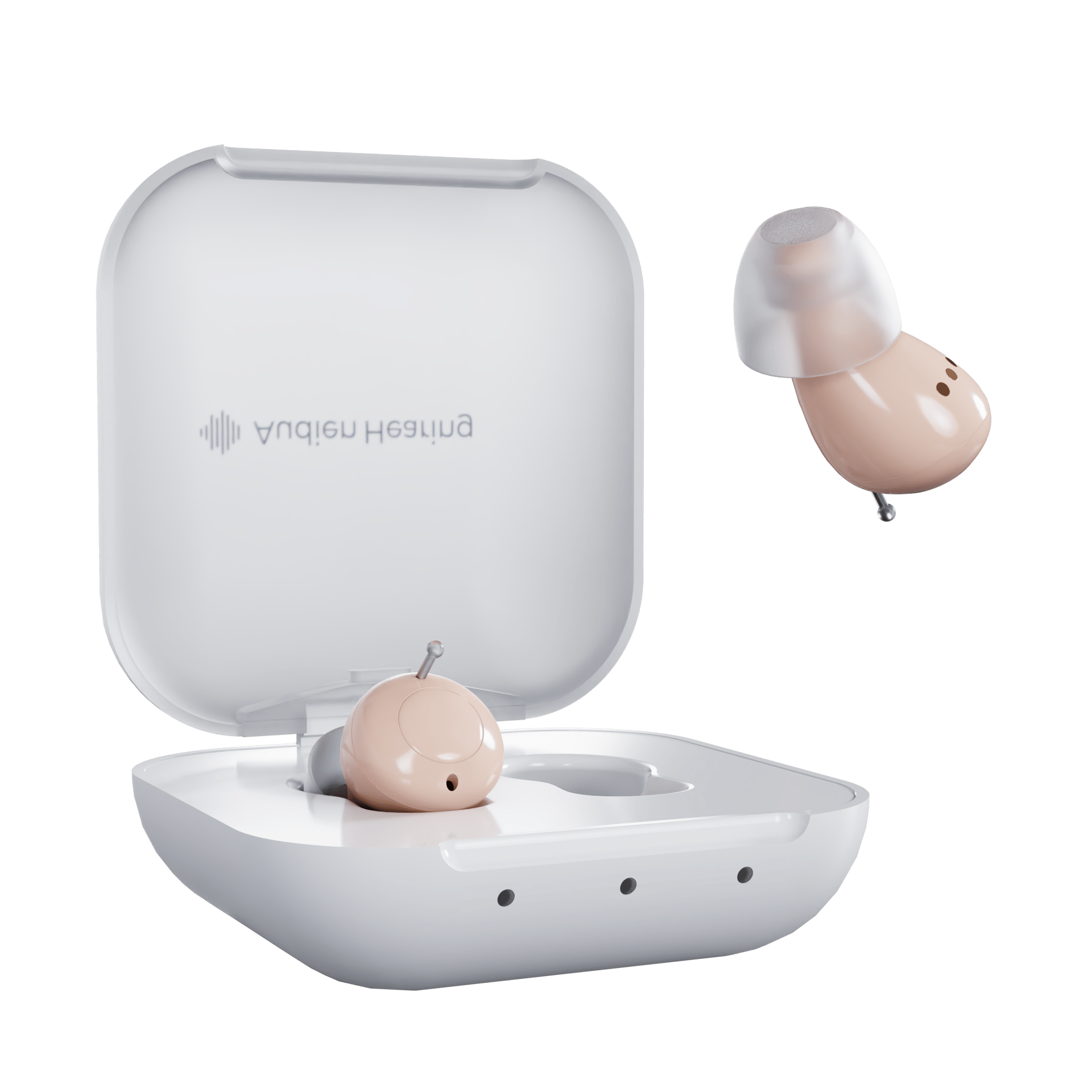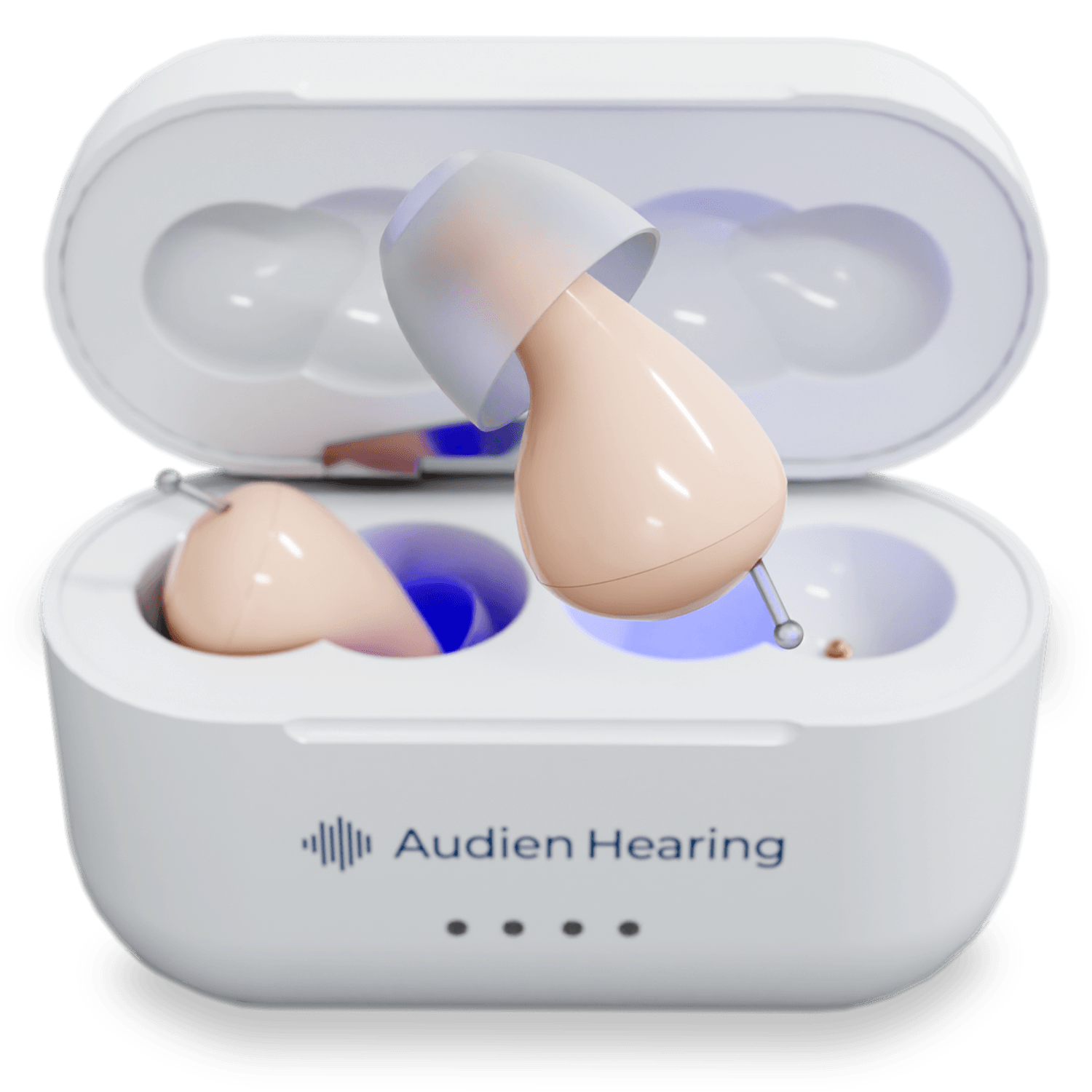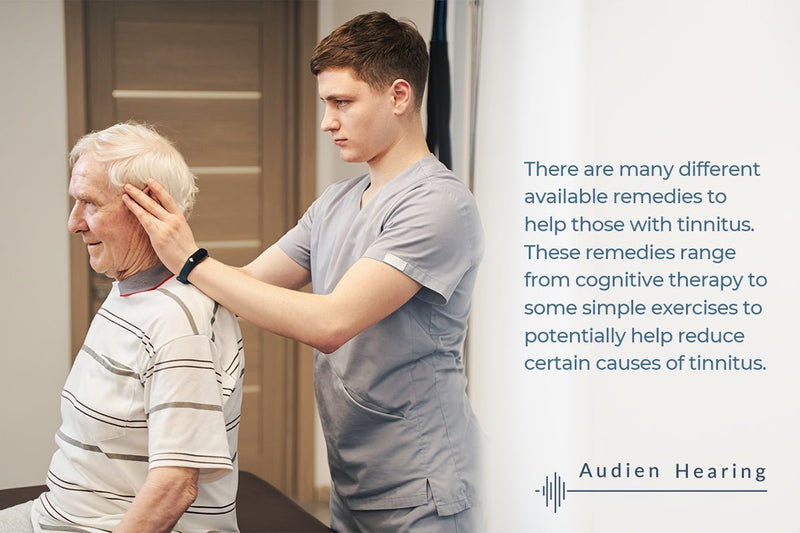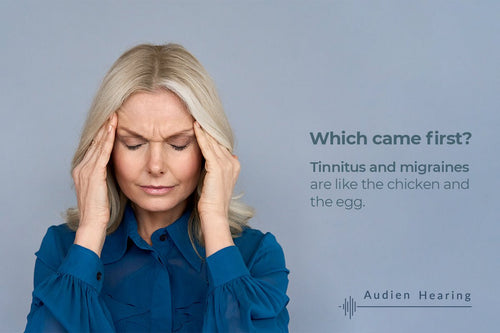“Tinnitus remains one of the most frustrating conditions both for patients and clinicians. There is no quick fix, but there are many things such as simple exercises that can help. Always remember to have a full medical evaluation with your doctor if the tinnitus persists, particularly if it is one-sided.” - Drew Sutton, MD, Board-Certified Otolaryngologist
Tinnitus is a multifactorial condition that can impact people of all ages. Characterized by a ringing in the ears, tinnitus can range in its level of severity as well as how impactful it can be on people’s lives.
Tinnitus can be characterized as a long-term chronic condition. Understanding ways to improve symptoms or get relief can be critical in getting back your quality of life.
There are many different available remedies to help those with tinnitus. These remedies range from cognitive therapy to some simple exercises to potentially help reduce certain causes of tinnitus.
Below is a closer look at some of the exercises that aim to help provide some tinnitus relief as well as other ways you can potentially get some tinnitus relief.
Exercises for Quick Tinnitus Relief

The body is vastly interconnected, and changes in one aspect of your body may impact other parts. This concept is true for those with tinnitus as it represents the fundamental reasoning behind the somatosensory modulation of tinnitus symptoms.
Somatosensory modulation may sound complicated, but in reality, it simply refers to how the sensation of pressure, pain, tension, or warmth can impact tinnitus severity.
When people discuss exercises for tinnitus, they utilize the underlying mechanism of somatosensory modulation to potentially decrease the intensity and severity of tinnitus. Exercises that reduce the somatosensory stimuli contributing to worsened tinnitus are what exercises for tinnitus do.
These exercises are mainly focused on the head, neck, and jaw and include stretching and manipulation. Below is a closer look at some of the exercises you can do to potentially lessen tinnitus severity.
Neck Exercises
Neck exercises are one way that many people find some form of relief for their tinnitus.
The neck is an important anatomical part of the body that is prone to being tense. A tense neck is a very common issue in today's world due to a large majority of people that work 40 hours a week sitting at a desk. Constantly slouching and having poor posture can also lead to a stiff neck.
No matter what the cause is for the tension emanating from your neck, you can do several different exercises to help reduce it and potentially reduce the severity of somatosensory modulated tinnitus.
The first exercise you can do is called neck retraction. To perform a neck retraction, you have your head in a naturally relaxed forward-positioned state. From there, you pull your head back without changing the direction your head is facing while simultaneously slightly tucking the chin and keeping your shoulders straight.
Simply repeat this stretch a couple of times a day, and it may help release unwanted tension in the neck and has the potential to help tinnitus.
Another exercise you can do is lateral flexion. To perform a lateral flexion, try to touch your ear to your shoulder without shrugging it and holding it. After about five seconds, you utilize the arm on the same side you are leaning, gently pull the head closer to the shoulder, and hold for another five seconds.
Repeat for both sides and try and aim to do the stretch around three times a day to help prevent tenseness.
Jaw Exercises
The jaw is another area of interest for tinnitus due to its proximity to the ear. Specifically, the joint where the jaw and skull meet is of particular importance. It is thought that problems such as swelling, irritation, pain, or tension with the temporomandibular joint (TMJ) may contribute to tinnitus symptoms.
Certain TMJ issues may require surgeries, but others may be able to be managed effectively with exercises. One of the main issues with TMJ is that the muscles responsible for the correct alignment of your jaw are not pulling their weight leading to other muscles overcompensating and leading to pain.
One of the best jaw exercises is targeted at the muscles responsible for jaw alignment. You start with your mouth closed and teeth barely touching. Place your tongue behind the top front teeth with your tongue resting on the roof of your mouth.
From there, roll back your tongue, making sure the tip of the tongue stays in contact with the roof of your mouth. You then open your mouth slowly until you feel that the tongue is moving from its position, and you then hold the position for five seconds and repeat. It is recommended to set aside five minutes twice a day and cycle through this exercise.
Exercises for Long-Term Tinnitus Relief
Tinnitus can have several different causes, and one such cause is blood flow-induced tinnitus. Blood is constantly flowing throughout your body thanks to the heart’s contractions that push blood throughout the entire body.
Under normal circumstances, blood flow is not a cause of tinnitus, but conditions such as atherosclerosis, high blood pressure, and others can contribute to the brain perceiving tinnitus. Blood flow-induced tinnitus can lead to a unique form of tinnitus known as pulsatile tinnitus, characterized by a pulsating of the sound heard in tinnitus.
Below is a look at some exercises you may want to consider to potentially help with tinnitus or ensure the improper flow of blood doesn’t cause your tinnitus.
Aerobic Exercise
Aerobic exercise is one of the best things you can do for optimal heart health. Aerobic exercise includes jogging, biking, rollerblading, swimming, and machines such as the elliptical. Aerobic exercise works by getting your blood pumping and placing a small amount of good stress on your cardiovascular system.
The body responds by improving blood flow efficiency, improving gas exchange in the lungs, and you may receive the benefit of overall better heart and cardiovascular health.
Regular exercise can effectively improve many cardiovascular problems such as high blood pressure, atherosclerosis, and more. These improvements can have the potential to help with specific forms of tinnitus.
Other Ways To Get Tinnitus Relief

Exercises represent only a small subset of the things you can do to try and get tinnitus relief. There is a myriad of other treatments available that may help alleviate some forms of tinnitus.
If tinnitus is constantly bothering you, it may be to your benefit to try everything available to you to try and get back your life before tinnitus.
Below is a closer look at other ways you could potentially get tinnitus relief other than exercise. Exercise may work for some, but tinnitus may need other remedies to help alleviate it for others.
Therapy
One of the most effective treatments by far for those with chronic tinnitus is therapy. Both cognitive behavioral therapy and tinnitus retraining therapy try to assess how you perceive and react to tinnitus.
Through successful therapy, those who find tinnitus disruptive and intrusive are better equipped to better deal with their tinnitus and live a more normal life.
Hearing Aids
Tinnitus is a symptom that is frequently brought on by some degree of hearing loss. One proposed reason is that the brain tries to compensate for sparse signals from the ears by increasing its sensitivity for what a sound should look like in terms of nerve impulse. The increase in sensitivity is then believed to register a lack of noise at a particular pitch.
In some cases, getting hearing aids with tinnitus is thought to help by allowing the ear to produce more regular nerve impulses to the brain and not requiring the brain to essentially strain itself to hear.
Hearing aids accomplish this by taking auditory stimuli and amplifying them through a microphone, amp, and speaker.
With such a simplistic design, it is astonishing how expensive audiologists charge for a pair of standard hearing aids.
Rather than paying an inflated price for hearing aids at the audiologist, consider Audien’s EV1. The EV1 has all the same great features as standard hearing aids in a smaller form and a smaller impact on your wallet.
Music
Tinnitus is most noticeable when the environment is void of any external auditory stimuli. Playing your favorite tune or playing some white noise can help to drown out your tinnitus and allow you some temporary relief.
This tip is of particular use when you are trying to go to sleep. Lying in your bed focusing on tinnitus can make it difficult to fall asleep. Picking a sleep soundtrack and listening to it can help to allow you to notice your tinnitus to a lesser extent and hopefully fall asleep.
Conclusion
In summary, tinnitus can be caused by several different factors. Somatosensory tinnitus has the potential to be helped by simple head, neck, and jaw exercises, and tinnitus with a cardiovascular component can be helped by regular exercise.
In addition to exercises, there are many other options available that can help tinnitus symptoms. These include hearing aids, therapy, and the use of music to drown out tinnitus.
Tinnitus can be incredibly frustrating, and with the tips above, hopefully, you can find some relief from your tinnitus symptoms. If your tinnitus continues to bother you even after trying at-home remedies, you should seek out an audiologist that may be able to help.
Sources:
Somatosensory tinnitus: Current evidence and future perspectives | NCBI
Diagnosis and management of somatosensory tinnitus: review article | NCBI
TMJ Treatments | American Tinnitus Association
Understanding the Facts | ATA,
Aerobic Exercise Health: What Is It, Benefits & Examples | Cleveland Clinic
